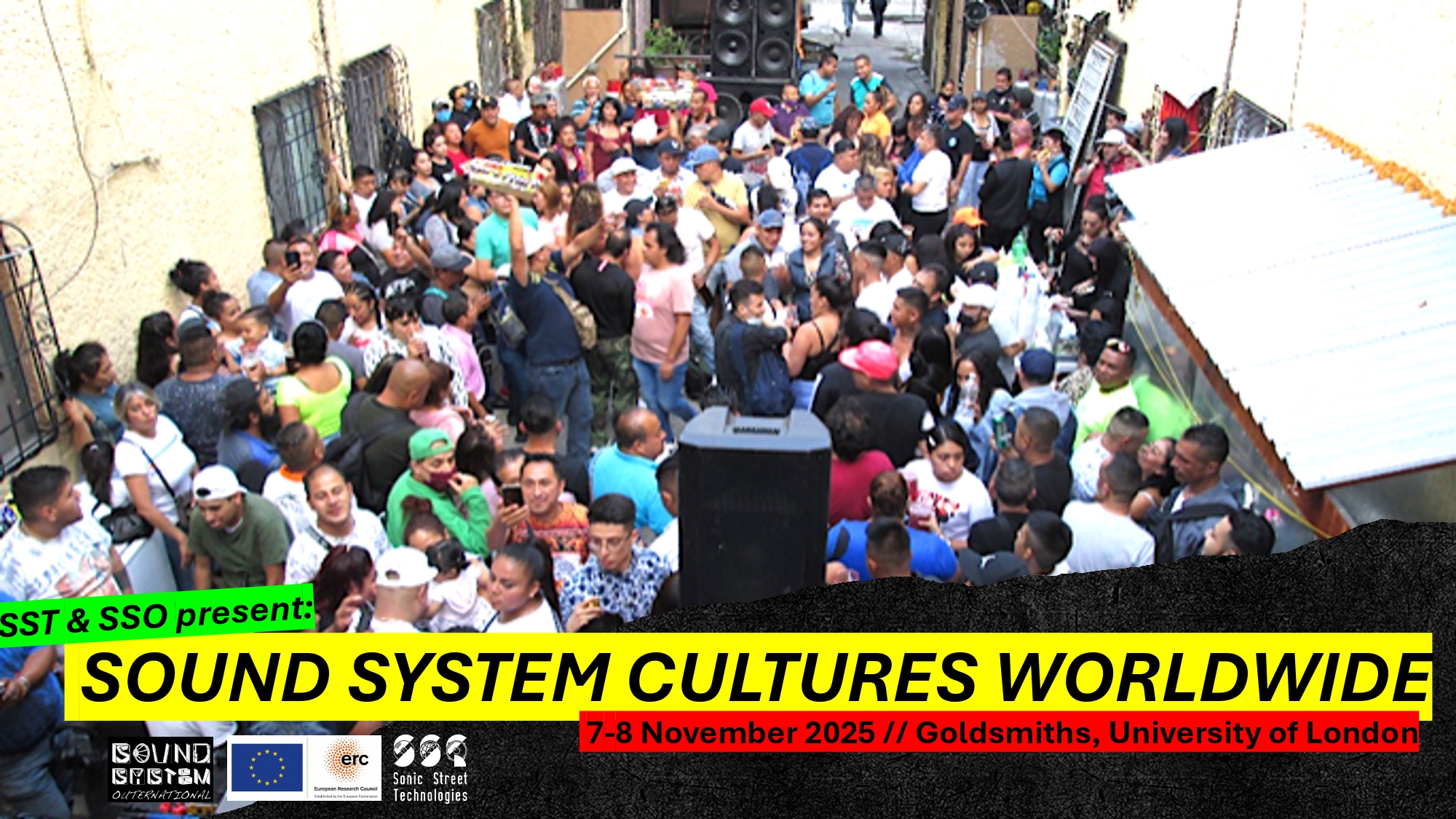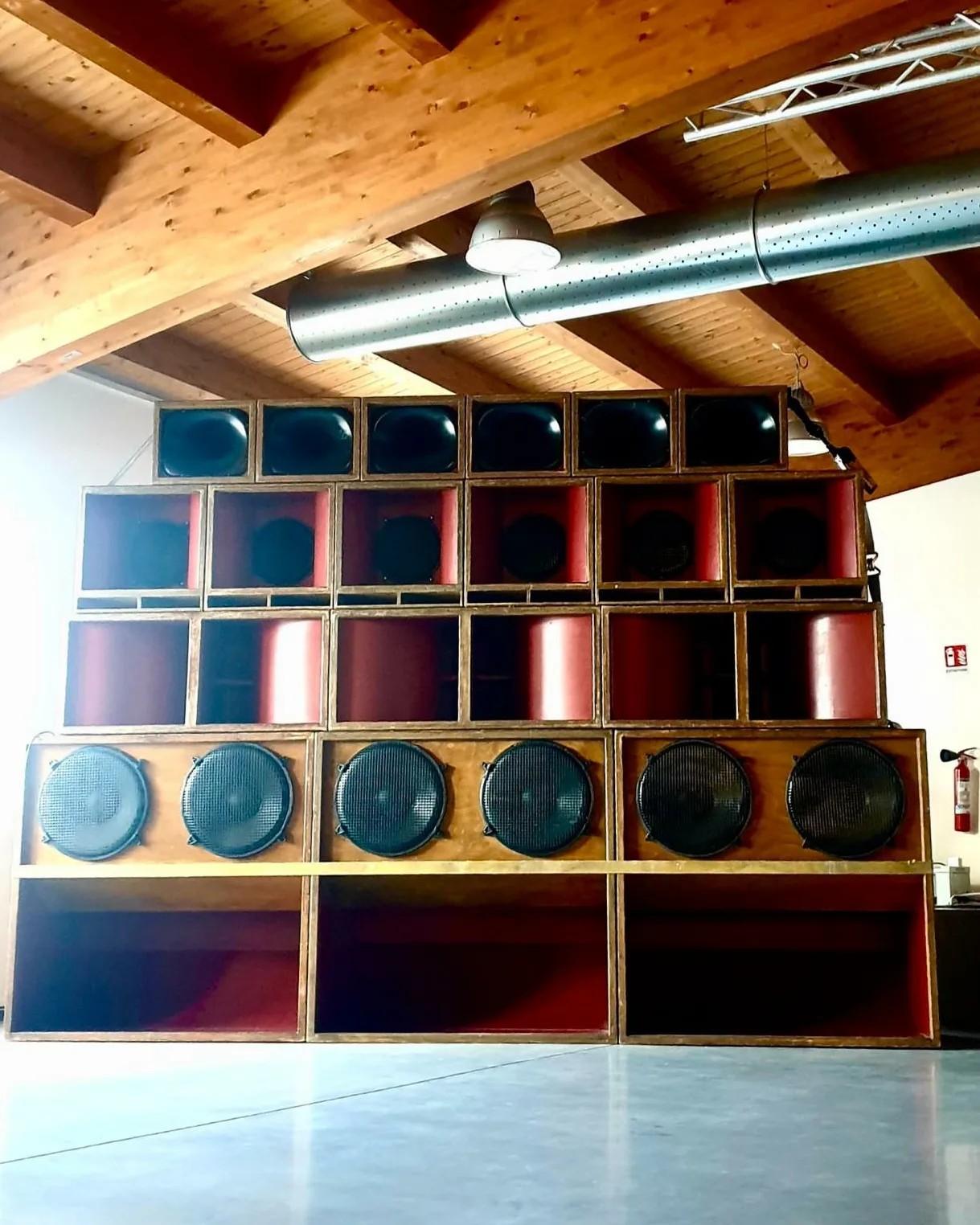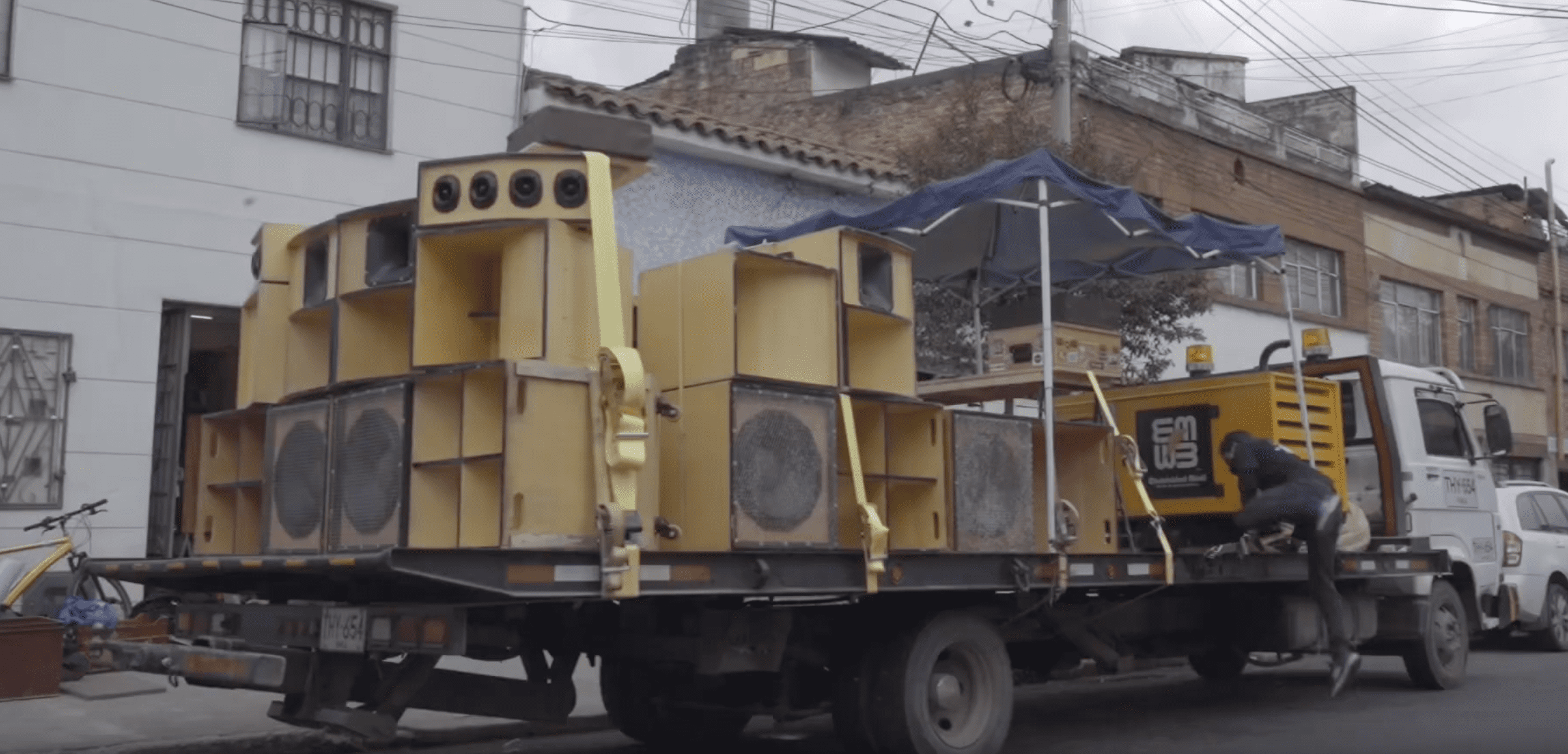Announcing SSO#11: Sound System Cultures Worldwide
“You never miss the water ‘til the well run dry” (Jamaican proverb). But also, you never know your culture ‘til you see it worldwide. Sound System Cultures Worldwide (7-8 November 2025) is a two-day event of film screenings, discussion and sound system sessions assessing the global impact of sound system cultures. Documentary films feature sound systems from Jamaica, India, South Africa, Brazil, Mexico, Australia and Colombia. These have been commissioned by, or made by, the Sonic Street Technologies (SST) ERC research project and the event will be their UK premier. SST global team members report on their research work in discussion with Sound System Outernational (SSO) members, researchers and students. Soul Rockers reggae sound system from Italy will be in residence over the two days and the dance on the Saturday evening.

Scheduled for 7-8 November 2025, Sound System Cultures Worldwide promises to be a unique event, truely Outernational. Never before has it been possible to so readily appreciate – through film and discussion – the UK and Jamaica’s sound system culture as part of a worldwide phenomenon. This resonance was already evident at a screening of some of the films for the Huddersfield sound system community last year (see this blog). Yes, reggae music and sound systems may have the broadest global reach (second only to hip-hop), but they are far from being the only sonic street technology, or even the first. The Mexican sonidera culture can equally well make this claim (as indeed one practitioner did to counter the reggae-centric claim of one early blog authored by the Jamaica SST team).
Sound System Cultures Worldwide claims all types of sound system as part of a global phenomenon (setting aside the historical disputes that supporters may have). This does not mean they are all part of a single scene. While the internet makes everything available everywhere and social media is a vital part of every scene, most people spend their time as part of what in pre-internet was called a popular sub-culture (as distinct from a country’s mainstream commercial culture). These are invariably defined by their music genre, not their street technology. In fact, this is the only point at which the SST research project’s focus differs from that of the scenes we research.

Soul Rockers from Italy, resident SSCW sound system
So, what is to be gained by our Outernational perspective? First, political solidarity that comes from shared values and shared struggles. You won’t miss this point in Colombian sound system El Gran Latido’s film in the screening program. Just as sound system cultures can support progressive politics at both local and national scales, historically, internationalism has been a powerful force, as seen in the Spanish Civil War, the Nicaraguan Revolution, and, of course, the anti-colonial Pan-African movement. Currently, such international link-ups are most evident with women’s and queer sounds, irrespective of the different musics they play.
These developments are not only a matter of gender balance, access, and representation. It also concerns the impact that this new—or rather, newly made visible—presence has on the culture itself. One striking aspect is that female and queer practitioners across diverse contexts often stress that they are far less invested in the ownership and sheer size of sound equipment, elements historically central to the self-identification of their male counterparts—and, by extension, to the culture as a whole. As several female practitioners put it: “That’s a men’s thing.” By shifting the focus away from power and size, female and queer practitioners are actively reinventing the very fundamentals of the culture—fundamentals they have deeply engaged with, even while long relegated to its margins.

Screen grab from El Gran Latido’s short film ‘Word, Sound and Power’
Our outernational perspective also places participants at Sound System Cultures Worldwide in unique position to appreciate the achievements of the scenes around the world. They each make a huge contribution to the popular culture of their country and its diaspora, often giving a sense of pride, identity and solidarity to practitioners and supporters. Also, the sets of equipment that each scene has developed, over many years and several generations, provides a living example of a different bottom-up positive way to put technology to use. Indeed, the equipment gives the different sound system scenes a lot in common – making it a global scene – in contrast with how musical tastes keep the scenes quite distinct and separate. The focus on this technological dimension is thus another distinctive feature of the SST research—one that even local researchers and fans often find surprising. In contrast to the corporate, top-down imposition of high tech—currently exemplified by Artificial Intelligence—sound systems and other sonic street technologies demonstrate how technology can, and should, be oriented toward social and community good.
One way Sound System Cultures Worldwide is not unique is as a collaboration between Sound System Outernational (SSO) and SST. There have been several previous such events, both online (see SSO#7 YouTube archive) and in person (see SSO#8 documentary online). A bit of history: the SST ERC research project was born out of SSO longstanding activity. Established in 2016 as a research group at Goldsmiths, SSO has focused on engaging sound system practitioners as partners in the research process. The community’s strong interest in the project, along with their sustained participation in our events—Sound System Cultures Worldwide marks SSO#11—provided the experience and confidence that enabled SSO to secure the ERC-funded SST research grant, giving us the means to expand our scope far beyond the reggae sound system scene, thus becoming truly Outernational.
Finally, this event marks a handover from SST to SSO, as the five-year ERC grant period concludes at the end of December this year. The SST website will be fully functional for at least the next five years, if not longer. Sounds will still be able to upload themselves onto the Sonic Map. Most importantly, the SST primary research output, the prospective Mobile Music Machines book series (Bloomsbury), only begins publication in 2026. In preparation are four edited volumes that cover the scope of the SST project, featuring chapters written by SST researchers from around the world. Each will be edited by members of the SST team. So, lots to look forward to.
SSO#11 Sound System Cultures Worldwide (SSCW)
Presented by Sound System Outernational (SSO) and Sonic Street Technologies (SST)
Dates: Friday 7th and Saturday 8th November 2025
Venue: Goldsmiths, University of London (Professor Stuart Hall Building)
Free Registration links:
For further info please email: soundsystemouternational@gmail.com
